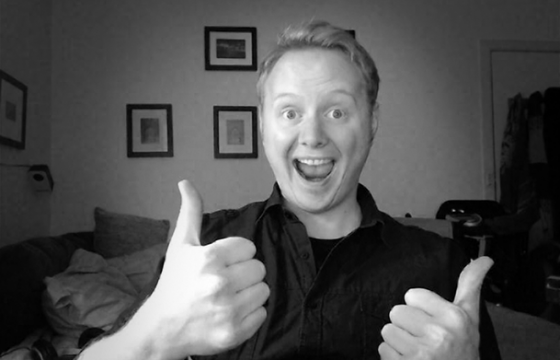In a Nutshell
At RMIT University's GEElab, we are researching how game design thinking can positively affect and alter architecture & urbanism, mobility, popular media, storytelling, engagement, other sciences as well as society itself.
Will is a game designer and 3D artist working with the lab as a Research Assistant and PhD Candidate.
Growing up on adventure games and RPGs, Will became fascinated by how game worlds frame and influence our experiences within them - a theme reflected both in his research and design work.
Will is deeply interested in not just what we take with us into game worlds, but what we bring back; and how game design can inform our perceptions of the everyday while maintaining ethical and responsible design practices. His current PhD Research project Objects of Play explores these themes by looking into the many ways we interact with and experience video game objects.
Will is an RMIT graduate with a B.A in Games Graphics Design and a B.A of Media & Communication with 1st Class Honours, and some days he doesn’t even mind having to work with computers.
If you have an interesting experience or story to tell about a video game object you’d be willing to share, Will would love to hear from you.
Objects of Play is an exploration into the nature of virtual game objects, and the complex relationships we form with them.
Through both project work and ehtnographic research, this project is seeking to understand how we think, feel and experience virtual objects through play and is exploring questions such as;
Deep Rift is a chilling underwater horror game designed in Unity for the Oculus Rift, putting players at the helm of a deep-sea submersible in the unfriendly ocean depths.
Being developed with fellow GEElabber Alexander Muscat, the game is currently in an early pre-aplha state.
Deep Rift has been presented at RMIT’s 2014 Open Days and the launch event for the youth support website MyRollerCoaster.org.
Diamate is a gameful app for smartphones, designed to empower diabetes type–2 patients with the knowledge they need to maintain a healthy lifestyle while learning way to manage their condition.
The app provides patients with a way to track their exercise, medication and diet; as well as social elements that help them document and share their experiences in a safe and entertaining environment.
Being designed by the GEElab in partnership with the University of Sydney’s Charles Perkins Centre, Diamate is expected to enter medical trials some time in late 2014/early 2015.
Developed with Alexander Muscat, Mutually Assured Destruction is an experimental role-playing card game of strategy, intrigue and paranoia based on John von Neumann’s Cold War era strategy game of the same name.
Players must work in teams to gather intelligence and make strategic choices to ensure that their country is the one still standing when the game ends.
GEEnetics was a partnership between the GEElab and European genomics research group SyBoSS, helping to translate their work into educational games for internal use and public outreach.
A continuation of his work on GEEnetics, GEElabs examined the work and collaboration done between the GEElab locations at RMIT in Melbourne, Australia and in Karlsruhe, Germany.
The project explored several gameful applications to international research collaboration, and also explored the potential for adapting game technologies as low-cost alternatives to expensive purpose-built solutions.
“Creating a Taxonomy of Environmental Narrative for Video Game Design” is an exploration of the techniques used by level designers to tell stories using game environments.
It examined the techniques level designers use to create narratives with their game worlds and consisted of two parts; a written examination of the techniques and a series of environments built in the UDK game engine, designed to put those techniques to the test. Will recieved First Class Honours for this research work.

At RMIT University's GEElab, we are researching how game design thinking can positively affect and alter architecture & urbanism, mobility, popular media, storytelling, engagement, other sciences as well as society itself.